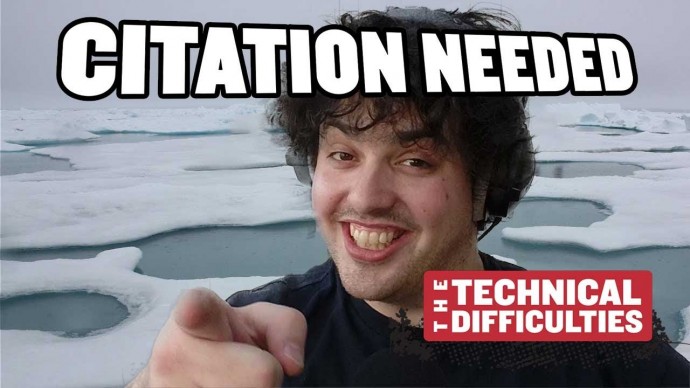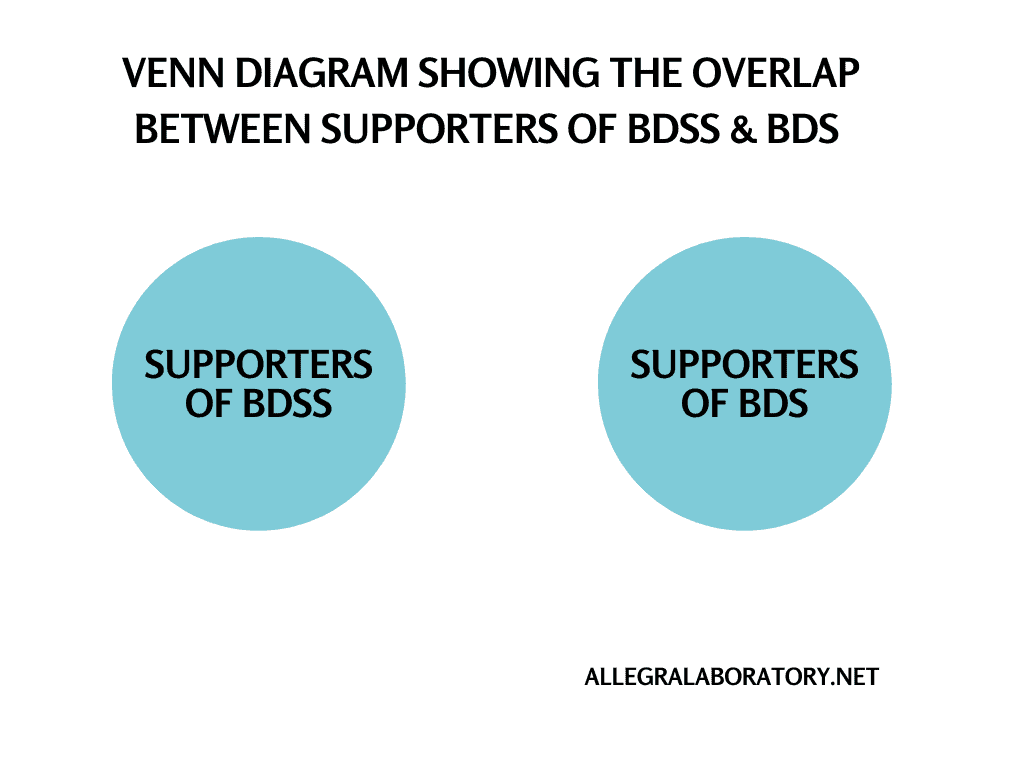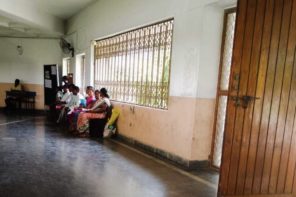Mark Goodale is currently writing Anthropology and Law: A Critical Introduction for NYU Press. The manuscript is due at the end of December 2015. One of the ideas behind this volume is to ensure that the voices of scholars outside the dominant Anglo-American tradition are represented, both in terms of region and in terms of generation.
As an experiment in intellectual (and perhaps ethical) production, he is offering to take any and all suggestions for references. It is not exactly like he is crowdsourcing the bibliography, but rather participating in an experiment in democratizing knowledge.
The categories are the following;
—the anthropology of justice
—the anthropology of human rights
—law and different forms of regulation
—law and indigenous peoples
—law and gender
—law, ethnic conflict and nationalism
—law and language
—law, history, and memory
Please feel free to make suggestions (these should be anthropological references) in the comments section below. Do not miss your chance to get quoted in a book that promises to become a reference in legal anthropology!











Algazi, Gady. 1997. “Lords Ask, Peasants Answer: Making Traditions in Late Medieval Village Assemblies.” In Between History and Histories: The Making of Silences and Commemorations, edited by G.M. Sider and G.A. Smith, 199–229. Anthropological Horizons; 11. Toronto; Buffalo: University of Toronto Press.
Gadi
Büyüksaraç, Güldem Baykal. 2015. “Unheard voices: State-making and popular participation in post-Ottoman Iraq.” Ethnic and Racial Studies (Special Issue: Minority Politics in the Middle East and North Africa: the Prospects for Transformative Change, guest edited by Will Kymlicka and Eva Pfoestl), Vol 38, Issue 14:1-18. doi: 10.1080/01419870.2015.1061133.
Abstract
I explore the nature of the particular nation-state form that came into being in Iraq during the British mandate, and in particular its impact on minorities. The mandate government, and the broader international legal framework, structured state-minority relations in post-Ottoman Iraq in ways that continue to shape Iraqi politics. While socio-cultural differences in Iraqi society were given constitutional recognition, this did not lead to the effective protection of minority rights, primarily because the principle of popular participation was not respected. The mandate legacy in Iraq has been long lasting, as the mistakes of the past have been reproduced by postcolonial regimes, and thus the state-minority relationship has been locked in a loop of exclusionary politics and securitization.
Keywords: Iraq, Ottoman Empire, national minorities; British mandate; minority rights; securitization.
P.S: A version of this piece was presented at the last annual meeting of Law and Society Association (Seattle, 2015).
Zorbas, Konstantinos. 2015. ‘The Origins and Reinvention of Shamanic Retaliation in a Siberian City (Tuva Republic, Russia).
In ‘Journal of Anthropological Research’, vol. 71, no. 3 (upcoming, Fall issue). [Peer-reviewed.]
Key words: Persecution, Altered states, Cultural Justice, Occult-mediated Crimes, Law.
Morreira, S. In Press. Forthcoming 2016. Rights After Wrongs: Human Rights and Local Knowledge in Zimbabwe. Stanford Studies in Human Rights, Stanford University Press: Stanford, California
Morreira, S. 2015. “You can’t just step from one place to another”: The socio-politics of illegality in migration from Zimbabwe to South Africa” Migration Letters Vol 12 (1), pp 67-78
Morreira, S. 2011. ‘Framing Harm: legal, local and anthropological knowledge in the context of forced migration.’ Anthropology Matters 13(1)
2015, Heemeryck A., “The Imaginary Debt of Communism: Political Conflicts and Historical Legitimization in Romania” in Hours B. & Ould-Ahmed P., An Anthropological Economy of Debt. Routledge, London & New-York.
2013, Heemeryck A. : « La dette imaginaire du communisme : Luttes politiques et légitimation historique en Roumanie » in Hours B. & Ould-Ahmed P., Dette, de qui, dette de quoi? Une économie anthropologique de la dette, Paris, L’Harmattan : 203-225.
2012, Heemeryck A. : « La dé-communisation conservatrice en Roumanie : le communisme comme matrice de dé/légitimation politique » in Heemeryck A. & Pantelimon C. (Dir.), La globalisation en perspective. Elites et normes, ed. Niculescu Bucarest : 111-136.
Heemeryck A., 2010 : L’importation démocratique en Roumanie, L’Harmattan, coll. Anthropologie critique, Paris, 402p.
Heemeryck A., 2006 : « Gouvernance démocratique, État et ONG en Roumanie : quelques éléments de clarification autour de l’introduction d’une loi de transparence » in L’Homme et la société, n° 159 (janvier-mars) : 175-190.
Terradas, Ignasi (2008) “Justicia vindicatoria”, Madrid: Editorial CSIC.
Zvika Orr, 2012, “The Adaptation of Human Rights Norms in Local Settings: Intersections of Local and Bureaucratic Knowledge in an Israeli NGO.” Journal of Human Rights 11 (2): 243-262.
Daphna Golan and Zvika Orr, 2012, “Translating Human Rights of the “Enemy”: The Case of Israeli NGOs Defending Palestinian Rights.” Law & Society Review 46 (4): 781-814.
Zvika Orr and Daphna Golan, 2014, “Human Rights NGOs in Israel: Collective Memory and Denial.” The International Journal of Human Rights 18 (1): 68-93.
Daphna Golan, Zvika Orr and Sami Ershied, 2013, “Lifta and the Regime of Forgetting: Memory Work and Conservation.” Jerusalem Quarterly 54: 69-81.
Zvika Orr, 2011, “Imposed Politics of Cultural Differences: Managed Multiculturalism in Israeli Civil Society.” Social Analysis 55 (3): 74-92.
Zvika Orr, 2014, “International Norms, Local Worlds: An Ethnographic Perspective on Organ Trafficking in the Israeli Context.” Pp. 39-49 in: Ethical, Legal, and Psychosocial Aspects of Transplantation: Global Issues, Local Solutions, eds. Willem Weimar, Mike Bos and Jan van Busschbach, Pabst Science Publishers.
—About “law and indigenous peoples” and “law, ethnic conflict and nationalism” :
Möerner, M. (1965). ¿ Separación o integración ?. Journal de la Société des Américanistes, (54), 31–45.
Padilla, G. (1996). La ley y los pueblos indigenas en Colombia. Journal of Latin American Anthropology, 1(2), 78–97.
Lee van Cott, D. (2000). A Political Analysis of Legal Pluralism in Bolivia and Colombia. Journal of Latin American Studies, (32), 207–234.
Tomoeda, H. (2004). El curanderismo en el laberinto judicial republicano. In Entre Dios y el Diablo. Magia y poder en la costa norte del Perú (IFEA, pp. 121–128).
Bellier, I. (2006). Identité globalisée et droits collectifs : les enjeux des peuples autochtones dans la constellation onusienne. Autrepart, (38), 99–118.
Forsyth, M. (2006). Sorcery and the criminal law in Vanuatu. LAWASIA.
Walsh, C. (2010). Interculturalidad crítica y pluralismo jurídico. In Seminario Pluralismo Jurídico, Procuradora del Estado/Ministerio de Justicia (pp. 13–14).
Cloud, L., Gonzalez, V., & Lacroix, L. (2012). Catégories, nominations et droits liés à l’autochtonie en Amérique latine. Variations historiques et enjeux actuels. In I. Bellier (Ed.), Peuples autochtones dans le monde. Les enjeux de la reconnaissance (Vol. 8, p. 2). http://doi.org/10.4267/2042/47239
Tarabout, G. (2013). Pratiques de justice. Catégories, procédures, stratégies. In Les frontières de la loi. Justice, pouvoirs et politique (pp. 3–15).
Pitrou, P. (2013). Justice et agentivité distribuée chez les Mixe de Oaxaca. Ateliers D’anthropologie, (39), 1–30.DOI : 10.4000/ateliers.9475
Truffin, B. (2009). El papel de los derechos indigenas en la amazonia ecuatoriana. Revista Nueva Antropologia, 22(71), 115–150. Retrieved from http://redalyc.uaemex.mx/src/inicio/ArtPdfRed.jsp?iCve=15911913007
Hammer, C., Jintiach, J. C., & Tsakimp, R. (2013). Practical developments in law science and policy: efforts to protect the traditional group knowledge and practices of the Shuar, an indigenous people of the Ecuadorian Amazon. Policy Sciences, 46(2), 125–141. http://doi.org/10.1007/s11077-012-9166-6
Sierra, M. T. (2015). Pueblos indígenas y usos contra-hegemónicos de la ley en la disputa por la justicia: La Policía Comunitaria de Guerrero. The Journal of Latin American and Caribbean Anthropology, 20(1), 133–155. http://doi.org/10.1111/jlca.12107
Walker, H. (2015). Justice and the Dark Arts: Law and Shamanism in Amazonia. American Anthropologist, 117(1), 47–58. http://doi.org/10.1111/aman.12170
— About “the anthropology of justice”:
Harner, M. J. (1977). Ley, represalia y guerra. In Ley nacional y norma tradicional (pp. 68–81).
Garcia S., F. (2004). Conclusiones de la mesa de reflexión jurídica y antropológica. In Pueblos en lucha.
— About “law and different forms of regulation”
Strathern, M. (1985). Discovering ’ Social Control ‘. Journal of Law and Society, 12(2), 111–134. Retrieved from http://www.jstor.org/stable/1409963
Comaroff, J. L. (2009). Reflections on the Rise of Legal Theology: Law and Religion in the Twenty-First Century. Social Analysis, 53(1), 193–216. http://doi.org/10.3167/sa.2009.530112
Tolan, J. (2015). Lex alterius : Using Law to Construct Confessional Boundaries. History and Anthropology, (January), 37–41. http://doi.org/10.1080/02757206.2014.933104
For a Visual ethnography of a customary law case on adultery, see:
Wiping the Tears | Essuyer les larmes
A film by Rina Sherman
DV, 75 min, 2012, Version Française & English version, Production: ACA LTFA, Distribution: Label K
http://www.rinasherman.com/film/WipingTearsEssuyerLarmes/WipingTearsOvahimba.html
Multimedia Exhibition of a multimedia ethnography:
http://www.bnf.fr/fr/evenements_et_culture/anx_expositions/f.ovahimba_sherman.html
Multimedia Conference:
Les Années Ovahimba / Rina Sherman. Une ethnographie multimédia en Namibie et Angola
The Ovahimba years / Rina Sherman. A Multimedia Ethnography in Namibia and Angola
http://www.bnf.fr/fr/evenements_et_culture/anx_auditoriums/f.autour_rina_sherman.html?seance=1223922398300
The (Il)legal Indian. The Tupinambá and the Juridification of Indigenous Rights and Lives in North-Eastern Brazil
http://sls.sagepub.com/content/early/2015/07/06/0964663915593412.abstract
Horton, Paul, Rydström, Helle and Maria Tonini. 2015. “Contesting Heteronormativity: The Fight for LGBT Recognition in India and Vietnam”, Culture, Health and Sexuality vol. 17 issue 9.
The article takes a comparative approach to the different legal frameworks in India and Vietnam regarding sexual minorities, and how civil society organizations in the two countries deal with heteronormative values and regulations.
Indigeneity, Law, Rights
Ramos, Alcida Rita (1994). “The Hyperreal Indian.” Critique of Anthropology 14(2).
Ramos, Alcida Rita (2003). “Pulp Fictions of Indigenism.” In Race, Nature, and the Politics of Difference (Donald S. Moore, Jake Kosek, and Anand Pandian, eds.) Durham, NC: Duke University Press.
Warman, Arturo, Margarita Nolasco, Guillermo Bonfil, Mercedes Olivera, and Enrique Valencia (1970). De eso que llaman Antropología Mexicana. Mexico, DF: Editorial Nuestro Tiempo.
Ledvinka, T. (forthcoming). “Bronislaw Malinowski and the Anthropology of Law’” In Mateusz Stiepen et all.: Legal thought of Bronislaw Malinowski (Book chapter)
Ledvinka, T. (forthcoming). “Leopold Pospisil.” In Karel Schelle et all. Encyclopaedia of Czech legal histories. (Encyclopaedic entry)
Ledvinka, T. 2015. “Antropologie prava. [Anthropology of law].” In Karel Schelle, Jaromír Tauchen et all. Encyklopedie českých právních dějin [Encyclopaedia of Czech legal histories]. Volume I. “ A-Č;” 311-315. (Encyclopaedic entry)
Ledvinka, T. 2015. “Subaltern law: Legal technology of making the law of the ‘other.’” In Petr Gibas; Karolína Pauknerová; Marco Stella et all.: Non-humans in Social Science III. (Book chapter)
Ledvinka, T. 2014. “From border to distance: Dynamics of spatial dimension of law and its implication for justice.” In Karolína Pauknerová; Marco Stella; Petr Gibas et all.: Non-humans in Social Science II:Ontologies, Theories and Case Studies: 219-238. (Book chapter)
Ledvinka, T.; Lenka Kožíšková 2014. “Bronisław Malinowski’s Concept of Law from the Native’s Point of View: A Workshop Held on 12-13 September 2014 in Krakow, Poland.” In Sociologický časopis/Czech Sociological Review 50, 6: 1015-1018. (Information)
Ledvinka, T. 2014. “Bruno Latour: The Making of Law. An Ethnography of the Conseil d’Etat.” In Sociologický časopis/Czech Sociological Review 50, 6: 1008-1011. (Review)
Ledvinka, T. 2014. “Rebecca Redwood French: The Golden Yoke. Legal Cosmology of Buddhist Tibet.” In Nový Orient 2/2014: 79-80. (Review)
Ledvinka, T. 2012. “Cultural determination of jurisprudence and the anthropology of law.” In Tomas Ledvinka, Katerina Varhanik-Wildova Radek Visinger et all. Towards an Anthropology of the Legal Field: Critiques and Case Studies, Praha, FHS UK: 2012. (Book chapter)
Ledvinka, T.; Katerina Varhanik-Wildova; Radek Visinger 2012. “Introduction.” In Tomas Ledvinka, Katerina Varhanik-Wildova Radek Visinger et all. Towards an Anthropology of the Legal Field: Critiques and Case Studies, Praha, FHS UK: 2012. (Introduction)
Ledvinka, T.; Varhanik-Wildova, Katerina; Visinger, Radek et all. 2012. Towards an Anthropology of the Legal Field: Critiques and Case Studies, Praha, FHS UK. (Collective monograph, see, on-line, at on-line )
Ledvinka, T. 2011. “Komparativní dimenze antropologie práva.” [The comparative dimensions of the anthropology of law] In AntropoWebzin 3/2011: 155-161. (Journal article)
Costello, M. 2013 [in Russian] Predshevstvuyushchie I soputstvuyushchie protsedury in obychai [Old and Continuing Procedures and Customs] Society, State and Law. Contributions to t he International Scientific and Applied Conference. Sochi, 18-20 October 2012. Rostov on Don: Law Faculty of the Sochi Institute (filial) of the Russian University of Peoples’ Friendship: 104-108.
Costello, M. 2011. Notions of coexistence between custom and law: a current experiment in the emergent state of Abkhazia. Journal of the Anthropological Society of Oxford, JASO on-line NS, Vol 2:1: 1-37.
Kamkiia, F. and Costello M. 2013 [in Russian] Abkhazia: Zakon. Razmyshlenia na temu [Abkhazia: Law and Custom. Reflections on a Theme] Rostov-on-Don: ProfPress. Faculty of the Theory and History of the State and Law, Sochi Institute (filiale) of the Russian University of Peoples’ Friendship.
This small volume presents two different views on the actual relationship of law and custom in a state in the Caucasus in which customary practices and notions of a ‘modern’ state are in conflictual co-relationship.
Costello, M. 2015. Law as Adjunt to Custom? Abkhaz custom and law in today’s state-building and ‘modernisation’ – studied through dispute resolution. Doctoral dissertation. Full e-version available through “Thesis” holdings at Templeman Library, University of Kent.
This dissertation /thesis considers the possibilities of creating a state grounded on customary notions in which direct democracy nullifies the validity of contemporary notions of custom- state relations in the disciplines of Anthropology and Law. The research is carried out in a post-Soviet state in the Caucasus and Black Sea region.
Diamond, S. 1974. The Rule of Law versus the Order of Custom. In In Search of the Primitive. A Critique of Civilization. New Brunswick. N.J. Transaction Books: pp. 255-280.
Laurens Bakker and Jaap Timmer (2014) ‘Justice in Indonesia: the social life of a momentous concept’ The Asia Pacific Journal of Anthropology 15 (4), pp. 293-301.
Lavinia Stan and Nadya Nedelsky (eds.) (2013) Encyclopedia of Transitional Justice. Cambridge University Press, Cambridge.
Ward Berenschot, Adriaan Bedner, Eddie Riyadi Laggut-Terre and Dewi Novirianti (eds.) (2013). Akses Terhadap Keadilan:Perjuangan masyarakat miskin dan kurang beruntung untuk menuntut hak di Indonesia. HuMa, KITLV-Jakarta, Epistema Institute, Jakarta and Van Vollenhoven Institute, Leiden
Jeffery, Laura. 2014. Neither confirm nor deny: WikiLeaks evidence and the Vienna Convention on Diplomatic Relations in the judicial review of the Chagos Marine Protected Area. Anthropology Today 30,3. [Cover article.]
Jeffery, Laura. 2009. Chagossians refused right to return home. Anthropology Today 25,1.
Jeffery, Laura. 2006. Historical narrative and legal evidence: judging Chagossians’ High Court testimonies. PoLAR: Political and Legal Anthropology Review 29,2. [Selected for Open Access rerelease with a new Postscript in 2014.]
Kesselring, R. In Press. Forthcoming 2016. Law and the Injured Body: Apartheid Victimhood before Courts. Stanford Studies in Human Rights, Stanford University Press: Stanford, California.
Kesselring, R. In Press. Forthcoming 2016. ‘An Injury to One Is an Injury to All? Class Actions in South African Courts and Their Social Effects on Plaintiffs.’ PoLAR: Political and Legal Anthropology Review.
Kesselring, R. 2015. ‘Case Pending: Practices of Inclusion and Exclusion in a Class of Plaintiffs.’ Journal Anthropology Southern Africa 38 (1&2): 16–28.
Kesselring, R. 2014. ‘Experiences of Violence and the Formation of the Political: Embodied Memory and Victimhood in South Africa.’ In: The Politics of Governance: Actors and Articulations in Africa and Beyond, edited by Till Förster and Lucy Koechlin, 151–79. Conceptualising Comparative Politics. London: Routledge.
Jauregui, Beatrice. 2013. Cultures of Legitimacy and Postcolonial Policing: Guest Editor Introduction. Law and Social Inquiry. 38(3): 547-552. [SEE WHOLE SPECIAL ISSUE OF THIS JOURNAL, INCLUDING ARTICLES BY ANTHROPOLOGISTS JULIA HORNBERGER, BEATRICE JAUREGUI, JEFFREY MARTIN, ERICA ROBB LARKINS]
Jauregui, Beatrice. 2013. Dirty Anthropology: Epistemologies of Violence and Ethical Entanglements in Police Ethnography. In Policing and Contemporary Governance: The Anthropology of Police in Practice, William Garriott, ed., Palgrave: 125-153. [SEE WHOLE BOOK FOR ANTHROPOLOGY OF POLICING IN VARIOUS REGIONS AND MOMENTS]
Jauregui, Beatrice. 2011. Law and Order: Police Encounter Killings and Routinized Political Violence. In A Companion to the Anthropology of India, Isabelle Clark-Deces, ed., Wiley-Blackwell: 371-388.
Groth, S. (2012). Negotiating Tradition: The Pragmatics of International Deliberations on Cultural Property. Göttingen: Göttingen University Press. Retrieved from http://resolver.sub.uni-goettingen.de/purl?isbn-978-3-86395-100-9
About “law and different forms of regulation”:
MÁRQUEZ, Raúl. 2014. Construir la propiedad. Las formas y usos del derecho en una ocupación de Salvador de Bahía. Andavira: Santiago de Compostela (ISBN: 978-84-8408-659-8).
Gotaas, Nora (2006): Cultural Background and Communication in Court.
In Dahl, Jensen, Nynäs (eds.): Bridges of Understanding. Perspectives on Intercultural Communication. Unipub forlag, Oslo Academic Press
Zambernardi A., 2008, “The Islamic Declarations on Human Rights: a comparison with the United Nations’ Declaration on Human Rights” (in Italian).
Keywords: anthropology and history of the Middle East, islamic law, ethical relativism, AAA statements on hr and following debates.
Unpublished, please contact the author.
Categories: Law and different forms of regulation/Anthropology of justice
Sílvia Gómez (2005) Orden y conflicto en tierras catalanas de frontera (1799-1850). Lleida: Universitat de Lleida, pp. 214
Abstract: I analysed the relationship between legal law and local juridical culture (customary law) through the study of dispute resolutions and court cases in the border region between north-eastern Spain and South-eastern France during the 19th century. The results shows how local values and local juridical culture prevailed by interacting with the judicial ordering of the State at contrary of that it could be expected of the centralization and standardization of law that was taking place at that time. The conflict resolutions permeate how local society is reproduced on the basis of social relationships of gender, age and class which are negotiated in every trial and dispute resolution. The local and moral values persist by interacting with legal law.
Sílvia Gómez (2007) “Une aproche anthropologique de la médiation pénale à Montpellier” in Droit et Sciences Sociales, Montpellier: Presses de la Université de Montpellier. Pp. 253-275
Abstract:
This paper focused on new forms of governance and legal systems of regulation, such as mediation systems, that seek to promote the involvement of civil society and communities in management and conflict resolution. The increase of complaints motivated by small disputes shows the progressive “judicialization” of society, cultural heritage of a liberal political and economic model stemming from the 19th century which is characterized by conflict aggravated by a spirit of competition, opposition of rights and claims. Since the 1980s and 1990s, the French penal system has resorted to alternative measures of resolution of conflicts which are less repressive, particularly with regard to penal mediation (1993). This shows itself within the framework of a return to a more liberal but secure State trying to favour a) “debureaucratization” which frees the justice system from an overload of small cases and b) the integration of a more participative political and legal culture which tends to the deverticalization of the State, the proceduralization and integration in the legal and political devices of moral requirements which are more sensitive to the social and cultural heterogeneousness of French society. The results show that the mediation: 1) serves for framing the part of the plaintiffs until then ignored in French society by the penal justice system, 2) it allows to convey the moral justice of the parties (the lived of the justice), 3) it involves the social devices of the justice, but also 4) it reproduces the traditional judicial system
Categories:
-Law and different forms of regulation and the anthropology of justice
Sílvia Gómez Mestres (2007) “Une aproche anthropologique de la médiation pénale à Montpellier” in Droit et Sciences Sociales, Montpellier: Presses de la Université de Montpellier. Pp. 253-275
Abstract:
The paper is focused on new forms of governance and legal systems of regulation, such as mediation systems, that seek to promote the involvement of civil society and communities in management and conflict resolution. The increase of complaints motivated by small disputes shows the progressive “judicialization” of society, cultural heritage of a liberal political and economic model stemming from the 19th century which is characterized by conflict aggravated by a spirit of competition, opposition of rights and claims. Since the 1980s and 1990s, the French penal system has resorted to alternative measures of resolution of conflicts which are less repressive, particularly with regard to penal mediation (1993). This shows itself within the framework of a return to a more liberal but secure State trying to favour a) “debureaucratization” which frees the justice system from an overload of small cases and b) the integration of a more participative political and legal culture which tends to the deverticalization of the State, the proceduralization and integration in the legal and political devices of moral requirements which are more sensitive to the social and cultural heterogeneousness of French society. The results show that the mediation: 1) serves for framing the part of the plaintiffs until then ignored in French society by the penal justice system, 2) it allows to convey the moral justice of the parties (the lived of the justice), 3) it involves the social devices of the justice, but also 4) it reproduces the traditional judicial system
Sílvia Gómez i Mestres (2005) Orden y conflicto en tierras catalanas de frontera (1799-1850). Lérida: Universidad de Lérida, pp. 214
Abstract:
The book analyses the relationship between legal law and local juridical culture (customary law) through the study of dispute resolutions and court cases in the border region between north-eastern Spain and South-eastern France during the 19th century. I shows how local values and local juridical culture prevailed by interacting with the judicial ordering of the State.The results show for the first time how during the nineteenth century the customary law had prevailed, at contrary of that it could be expected of the centralization and standardization of law that was taking place at that time. The conflict resolutions permeate how the local society is reproduced on the basis of social relationships of gender, age and class which are negotiated in every trial and dispute resolution. The local and moral values persist by interacting with legal law.